In today’s rapidly evolving business landscape, companies face the dual challenge of staying competitive while ensuring ethical practices. The rise of AI and automation has brought unprecedented opportunities for efficiency and innovation. However, these advancements also come with ethical dilemmas and responsibilities that cannot be ignored. Balancing progress with responsibility is crucial for businesses to harness the power of AI and automation without compromising on ethical standards.
The Relatable Problem
Imagine a large-scale enterprise that implements AI-driven automation to streamline its operations. Initially, the results are promising: increased productivity, reduced costs, and faster decision-making processes. However, soon ethical concerns arise. Employees worry about job displacement, customers question data privacy, and stakeholders raise issues about bias in AI algorithms. This scenario is common among businesses adopting AI and automation, highlighting the importance of addressing ethical concerns proactively.
Understanding the Ethics of AI and Automation
AI and automation are transforming industries by automating repetitive tasks, analyzing vast amounts of data, and making intelligent decisions. Technologies such as machine learning, robotic process automation (RPA), and natural language processing (NLP) are at the forefront of this revolution. While these technologies offer significant benefits, they also pose ethical challenges that need careful consideration.

Key Ethical Concerns
- Job Displacement: One of the most pressing concerns is the potential for AI and automation to replace human jobs. While automation can enhance efficiency, it can also lead to unemployment and job displacement if not managed responsibly.
- Data Privacy: AI systems rely on vast amounts of data to function effectively. Ensuring the privacy and security of this data is paramount to prevent misuse and protect individuals’ personal information.
- Bias and Fairness: AI algorithms can inadvertently perpetuate existing biases present in the training data. This can result in unfair and discriminatory outcomes, affecting decisions in hiring, lending, and law enforcement.
- Transparency: AI systems often operate as “black boxes,” making it difficult to understand how decisions are made. Transparency is crucial for building trust and ensuring accountability.
- Accountability: Determining who is accountable for the actions and decisions of AI systems can be challenging. Clear guidelines and accountability frameworks are necessary to address this issue.
Technologies and Ethical Practices
To address these ethical concerns, businesses need to adopt technologies and practices that promote responsible AI and automation. Here are some key approaches:
- Ethical AI Frameworks: Implement frameworks that guide the development and deployment of AI systems. These frameworks should prioritize fairness, accountability, and transparency.
- Data Governance: Establish robust data governance practices to ensure data privacy and security. This includes data anonymization, encryption, and strict access controls.
- Bias Mitigation: Use techniques such as bias detection and mitigation to identify and reduce biases in AI algorithms. Regular audits and diverse training datasets can help achieve this.
- Human-AI Collaboration: Encourage collaboration between humans and AI systems. Rather than replacing jobs, AI can augment human capabilities, leading to improved outcomes.
- Transparency and Explainability: Develop AI systems that provide clear explanations of their decisions. This enhances transparency and helps build trust among users.
How Elde.Tech Helps
At Elde.Tech, we are committed to helping businesses navigate the complexities of AI and automation while adhering to ethical standards. Our expertise spans various technologies, including Microsoft Power BI, Snowflake, Flutter Flow, Kissflow, Formstack, Creatio, and HCL Volt MX. Here’s how we support ethical AI and automation:
- Custom Software Solutions: We develop tailored AI and automation solutions that align with your business goals and ethical considerations. Our solutions are designed to enhance efficiency while ensuring fairness and transparency.
- Data Governance: Our data governance practices ensure that your data is handled responsibly, with strict measures in place to protect privacy and security.
- Bias Mitigation: We employ advanced techniques to detect and mitigate biases in AI algorithms, ensuring that your AI systems are fair and unbiased.
- Human-AI Collaboration: We design AI systems that complement human capabilities, fostering a collaborative environment where humans and AI work together to achieve better outcomes.
- Transparency Tools: Our solutions include tools that enhance the transparency and explainability of AI systems, helping you build trust with your customers and stakeholders.

Call to Action
Are you ready to harness the power of AI and automation responsibly? Book a demo with Elde.Tech today and discover how our ethical AI and automation solutions can transform your business. Click [here] to schedule your consultation or call us directly.
In the journey of digital transformation, balancing progress with responsibility is crucial. Let Elde.Tech be your partner in navigating this landscape, ensuring that your AI and automation initiatives are both innovative and ethical. Our expertise in digital transformation ensures that you stay ahead of the competition while maintaining the highest ethical standards.
